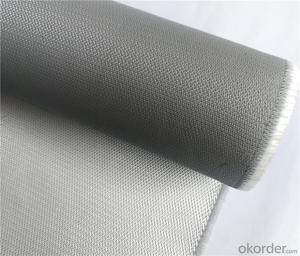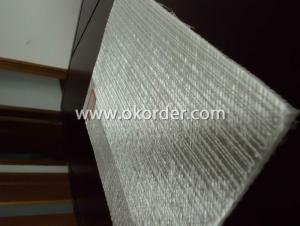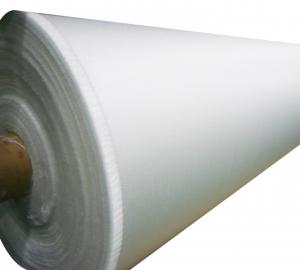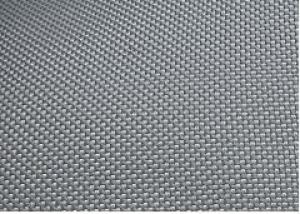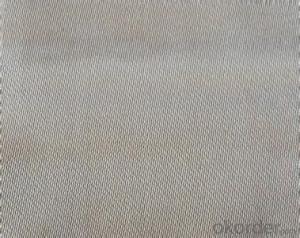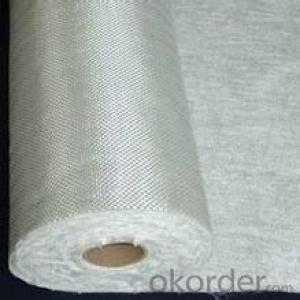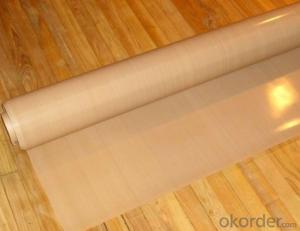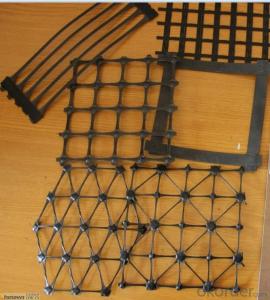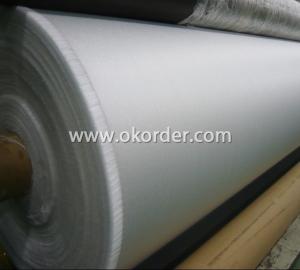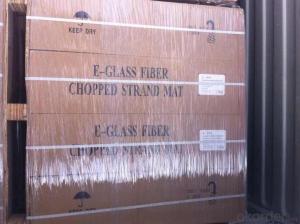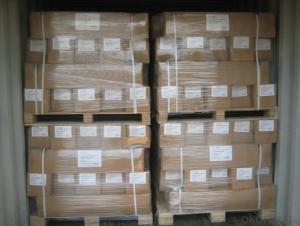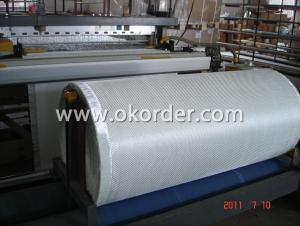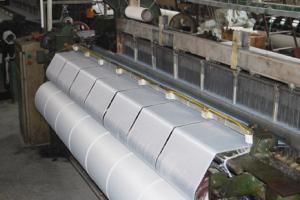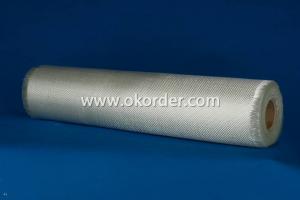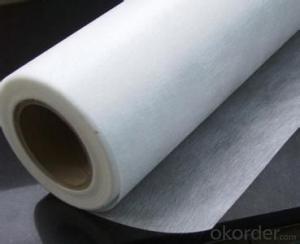Fire Resistant PU Coated Fiberglass Cloth
- Loading Port:
- Ningbo
- Payment Terms:
- TT OR LC
- Min Order Qty:
- 500 m²
- Supply Capability:
- 300000 m²/month
OKorder Service Pledge
OKorder Financial Service
You Might Also Like
Description: PU coated fabric is fiberglass cloth coated with flame retarded PU (polyurethane) on one-sided or double-sided surface. PU coating imparts fiberglass cloth good weave setting (high stability) and water resistance properties. PU coated fiberglass cloth can withstand a continuous working temperature of 550℃ and a short duration working temperature of 600℃. Compared with basic woven glass fiber fabric, It has many good features such as good air gas sealing, fire resistant, abrasion resistance, oils, solvents resistance chemical resistant ability, no skin irritation, halogen free. Can be used in fire and smoke applications, such as welding blanket, fire blanket, fire curtain, fabric air distribution ducts, fabric duct connector. We can offer polyurethane coated fabric with different colors, thickness, widths.
Features: Fire Resistant, Water Resistant, Abrasion Resistance
Application: Fabric Expansion Joint, Flexible Connector, Fireproof Curtain, Welding Curtain, Smoke Curtain, Welding Blanket, Fire Blanket, Insulation Cover
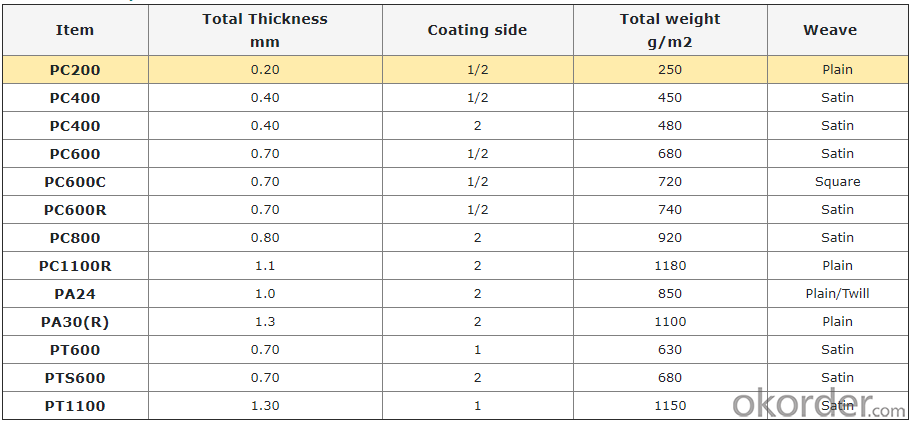
PRICE: USD3 per square meter
UNIT: square meter
MOQ: 500square meters
Weight: 210gsm-1800gsm
Width: 1m-2m or customized
Yarn Type: E-glass
Standing temperature -50℃-550℃
Product name: PU coated fiberglass fabric
Coating/Finish/Surface Treatment: PU coated
Roll length: 50 meter or customized
Color: Grey, Red, White, Green, Blue, Yellow, or customized
Weave Type: twill woven
Alkali content: alkali free
Processing service: cutting
Material: fiberglass PU
Thickness: 0.2mm to 3mm
Size: can be customized
Supply ability: 300000 meters per month
Packaging: PU coated fiberglass fabric rolls packed in cartons loaded on pallets or according to customers’ requirements
Lead time: 7-30 days
- Q:Can fiberglass fabric be used as a heat shield?
- Yes, fiberglass fabric can be used as a heat shield. Fiberglass is a highly heat-resistant material commonly used in applications where thermal insulation is required. It has excellent fire resistance properties and can withstand high temperatures without melting or deforming. Fiberglass fabric is often used as a heat shield in various industries such as aerospace, automotive, and construction. It is lightweight, flexible, and can be easily molded or shaped to fit different surfaces. Additionally, fiberglass fabric is known for its low thermal conductivity, meaning it is an effective barrier for heat transfer. Overall, fiberglass fabric is a reliable choice as a heat shield due to its high heat resistance, versatility, and durability.
- Q:Is fiberglass fabric suitable for making tents and awnings?
- Yes, fiberglass fabric is suitable for making tents and awnings. Fiberglass fabric is known for its durability, strength, and resistance to various weather conditions, making it an excellent choice for outdoor applications like tents and awnings. It is lightweight, yet provides excellent protection from the elements such as rain and wind. Additionally, fiberglass fabric has good UV resistance, which helps to prevent fading and damage from prolonged exposure to the sun. Its inherent fire-resistance properties also make it a safe choice for outdoor structures. Overall, fiberglass fabric is a suitable material for making tents and awnings as it offers a combination of strength, durability, and weather resistance necessary for these applications.
- Q:Can fiberglass fabric be used for reinforcement in pipes and tanks?
- Indeed, pipes and tanks can benefit from the reinforcement offered by fiberglass fabric. This material boasts exceptional strength and durability, along with its ability to resist corrosion, rendering it an optimal selection for reinforcing structures that might endure severe chemicals or extreme temperatures. The fabric can be affixed to either the inner or outer surface of the pipe or tank, delivering enhanced stability and strength. Furthermore, fiberglass fabric offers the advantage of being lightweight and flexible, enabling it to conform effortlessly to the shape of the pipes or tanks, guaranteeing a reliable and efficient reinforcement.
- Q:Are fiberglass fabrics suitable for use in the marine industry?
- Yes, fiberglass fabrics are highly suitable for use in the marine industry. Fiberglass is a durable and versatile material that offers numerous advantages for marine applications. Firstly, fiberglass fabrics have excellent resistance to water, chemicals, and UV radiation, making them highly suitable for prolonged exposure to harsh marine environments. This resistance ensures that the fabric will not deteriorate or degrade when exposed to saltwater, sunlight, or other corrosive elements commonly found in the marine industry. Secondly, fiberglass fabrics have high tensile strength and are extremely lightweight, making them ideal for applications such as boat hulls, decks, and other structural components. The strength-to-weight ratio of fiberglass fabrics allows for the construction of sturdy yet lightweight marine vessels, resulting in improved fuel efficiency and performance. Thirdly, fiberglass fabrics are known for their excellent thermal insulation properties, which is crucial in the marine industry. The insulation provided by fiberglass fabrics helps to regulate temperature, keeping the interior of boats or ships cooler in hot weather and warmer in cold weather. This is particularly beneficial for maintaining comfort and reducing energy consumption onboard. Furthermore, fiberglass fabrics are easy to work with and can be molded into various shapes and sizes, allowing for the fabrication of customized marine components. They can be used to reinforce or repair existing structures, as well as for the construction of new boats or ships. In summary, fiberglass fabrics are highly suitable for use in the marine industry due to their durability, resistance to harsh elements, high strength-to-weight ratio, thermal insulation properties, and versatility. Their wide range of applications and excellent performance make them a preferred choice for boat builders, shipyards, and other marine industry professionals.
- Q:Are fiberglass fabrics suitable for use in the construction industry?
- Yes, fiberglass fabrics are suitable for use in the construction industry. They are known for their strength, durability, and resistance to fire, chemicals, and rot. Fiberglass fabrics are commonly used in applications such as reinforcing concrete, insulation, roofing, and wall coverings. They provide excellent thermal and sound insulation properties, making them an ideal choice for construction projects.
- Q:What are the different widths of fiberglass fabric available?
- Fiberglass fabric comes in various widths, catering to different applications and project needs. The typical range of fiberglass fabric widths spans from 1 inch to 60 inches. Nevertheless, it's crucial to acknowledge that suppliers or manufacturers might provide alternative widths depending on their production capabilities and customer requirements. Moreover, custom widths are usually possible upon request. To ascertain the precise widths of fiberglass fabric offered, it is advisable to consult directly with a supplier or manufacturer.
- Q:Are there any specific storage requirements for fiberglass fabrics?
- Yes, there are specific storage requirements for fiberglass fabrics. It is recommended to store fiberglass fabrics in a cool, dry, and well-ventilated area to prevent moisture absorption and any potential damage to the fabric. The storage area should be free from direct sunlight, as prolonged exposure to UV rays can degrade the fabric's strength and appearance. Additionally, fiberglass fabrics should be stored away from any sources of heat or open flames to avoid the risk of fire. It is also important to keep the fabrics away from any chemicals, solvents, or oils that could potentially cause staining or deterioration. Properly storing fiberglass fabrics will help maintain their quality and longevity.
- Q:How does fiberglass fabric compare to other insulation materials?
- Fiberglass fabric is highly regarded as an effective insulation material due to its excellent thermal and acoustic properties. Compared to other insulation materials such as foam, mineral wool, or cellulose, fiberglass fabric offers exceptional heat resistance, durability, and fire resistance. It is also lightweight, easy to install, and has a low thermal conductivity, making it highly efficient in conserving energy and reducing heat transfer. Additionally, fiberglass fabric does not promote the growth of mold or mildew and is resistant to pests, making it a reliable and long-lasting insulation option.
- Q:Can fiberglass fabric be used for reinforcement in concrete structures?
- Yes, fiberglass fabric can be used for reinforcement in concrete structures. Fiberglass fabric, also known as fiberglass mesh, is made from woven fiberglass strands and is commonly used in construction applications. It offers several advantages as a reinforcement material in concrete structures. Firstly, fiberglass fabric has high tensile strength, which means it can withstand significant forces without breaking. This strength makes it capable of enhancing the durability and load-bearing capacity of concrete structures. It helps to distribute the load more evenly throughout the concrete, reducing the risk of cracks and structural failure. Secondly, fiberglass fabric is lightweight and easy to handle. Unlike traditional steel reinforcement, which can be heavy and time-consuming to install, fiberglass fabric is lightweight and can be easily cut, shaped, and applied. This makes it a convenient option for reinforcing different parts of a concrete structure, such as walls, columns, and beams. Additionally, fiberglass fabric is resistant to corrosion and does not rust like steel reinforcement. This corrosion resistance is particularly beneficial in environments that are exposed to moisture, chemicals, or other corrosive elements. By using fiberglass fabric, the risk of degradation and deterioration of the reinforcement over time is reduced. Furthermore, fiberglass fabric is non-conductive, which means it does not conduct electricity. This property can be advantageous in certain applications, such as in structures that require electrical insulation or in environments with electromagnetic interference. Overall, fiberglass fabric is a versatile and effective reinforcement material for concrete structures. Its high tensile strength, lightweight nature, corrosion resistance, and non-conductive properties make it a suitable choice for various construction projects. However, it is important to follow proper installation guidelines and specifications provided by manufacturers to ensure optimal performance and longevity of the reinforced concrete structure.
- Q:Can fiberglass fabric be used for making tarpaulins?
- Tarpaulins can indeed be made using fiberglass fabric, which is renowned for its durability, strength, and ability to withstand harsh weather conditions. This versatile material finds widespread use in several applications, including tarpaulin production. Despite its lightweight nature, fiberglass fabric boasts exceptional tear resistance and can endure high temperatures. Moreover, its waterproof properties make it a perfect choice for safeguarding goods and equipment from rain, snow, and other environmental elements. In addition, fiberglass fabric's resistance to chemicals, UV rays, and mildew contributes to its longevity and enhances its performance as an ideal tarpaulin material.
1. Manufacturer Overview |
|
|---|---|
| Location | |
| Year Established | |
| Annual Output Value | |
| Main Markets | |
| Company Certifications | |
2. Manufacturer Certificates |
|
|---|---|
| a) Certification Name | |
| Range | |
| Reference | |
| Validity Period | |
3. Manufacturer Capability |
|
|---|---|
| a)Trade Capacity | |
| Nearest Port | |
| Export Percentage | |
| No.of Employees in Trade Department | |
| Language Spoken: | |
| b)Factory Information | |
| Factory Size: | |
| No. of Production Lines | |
| Contract Manufacturing | |
| Product Price Range | |
Send your message to us
Fire Resistant PU Coated Fiberglass Cloth
- Loading Port:
- Ningbo
- Payment Terms:
- TT OR LC
- Min Order Qty:
- 500 m²
- Supply Capability:
- 300000 m²/month
OKorder Service Pledge
OKorder Financial Service
Similar products
New products
Hot products
Related keywords
